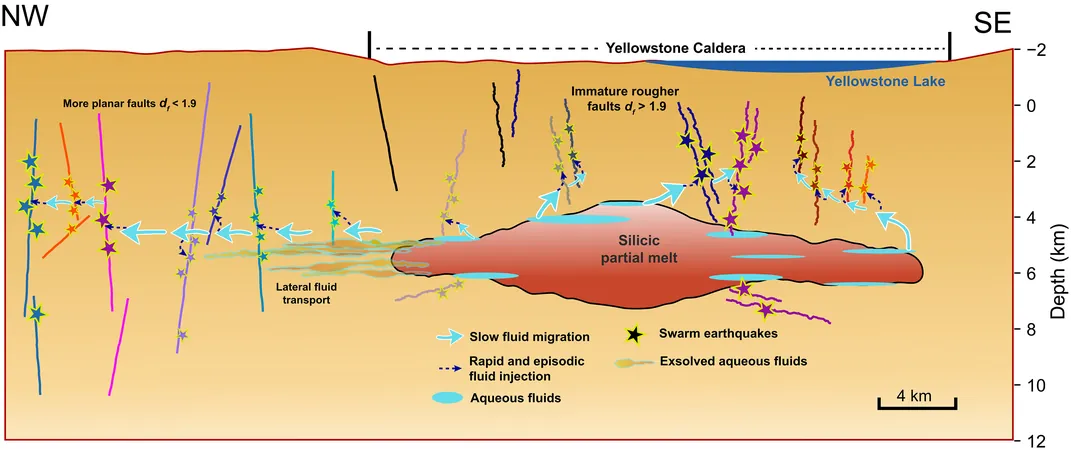
Unlocking the Mystery: Can Genetics and Environment Predict Your Stroke Risk?
2025-07-08
Author: Charlotte
Groundbreaking Research on Stroke Origins
A revolutionary study led by a team from the University of Alberta is set to receive a hefty $4.79 million funding boost over the next four years to investigate the intricate factors leading to stroke. This ambitious project aims to analyze blood samples from a staggering 3,200 stroke patients, working towards establishing a vital blood-based biomarker that could indicate one's stroke risk.
The Experts Behind the Study
At the helm of this initiative is Glen Jickling, a neurologist and Canada Research Chair specializing in Genomics and Genetics of Stroke. He holds a prominent position as an associate professor in the neurology division of the U of A’s department of medicine. Jickling explains, "Stroke isn’t just a medical term—it's a significant injury to the brain, manifesting in either a blockage of blood flow or bleeding within the brain."
A Nationwide Concern
Stroke remains the third leading cause of death in Canada, with alarming statistics revealing that approximately 878,500 Canadian adults over 20 have suffered from one. Common risk factors include obesity, diabetes, and hypertension, with age also playing a pivotal role.
State-of-the-Art Biobank Expansion
Co-leading the study alongside Jickling is David Wishart, a distinguished professor at the U of A’s department of biological sciences and a Canada Research Chair in Metabolomics and Precision Medicine. Wishart's expertise will guide the collection and storage of blood samples in an expanded biobank that will reach out to hospitals across Canada, resulting in a more comprehensive analysis of stroke.
Decoding Genetic and Environmental Influences
The research team plans to conduct whole genome sequencing on the collected blood samples to identify genetic variants linked to stroke risk. Jickling indicates, "We aim to distinguish genetic differences between individuals who have experienced a stroke and those who have not, drawing a clearer picture of genetic predisposition to this serious health risk."
More Than Just Genes
The analysis will go beyond genetics, measuring gene products such as transcripts and proteins. Jickling notes that it’s not just about having a specific gene; it’s often the interaction between genetic makeup and environmental factors that triggers a stroke. "Understanding these interactions requires a substantial sample size, which is why we're looking at thousands of patients," he explains.
Creating a Stroke Risk Profile
A key objective of the study is to develop polygenic risk scores that can accurately reflect an individual's potential stroke risk. According to Jickling, the higher the presence of stroke-related genetic variants, the greater the stroke risk, especially when combined with environmental triggers.
The Quest for Better Prevention
In light of the limitations of current stroke treatments, such as the narrow time frame for administering clot-busting drugs, the need for preventive measures has never been clearer. Jickling states that with existing therapies only working for about 30% of patients, transformative preventive strategies are crucial.
Aiming to Change Lives
Ultimately, this groundbreaking research seeks to pinpoint the risk factors associated with stroke, paving the way for better preventive therapies. By combining genetic and environmental insights, researchers hope to redefine stroke prevention and potentially save countless lives.









 Brasil (PT)
Brasil (PT)
 Canada (EN)
Canada (EN)
 Chile (ES)
Chile (ES)
 Česko (CS)
Česko (CS)
 대한민국 (KO)
대한민국 (KO)
 España (ES)
España (ES)
 France (FR)
France (FR)
 Hong Kong (EN)
Hong Kong (EN)
 Italia (IT)
Italia (IT)
 日本 (JA)
日本 (JA)
 Magyarország (HU)
Magyarország (HU)
 Norge (NO)
Norge (NO)
 Polska (PL)
Polska (PL)
 Schweiz (DE)
Schweiz (DE)
 Singapore (EN)
Singapore (EN)
 Sverige (SV)
Sverige (SV)
 Suomi (FI)
Suomi (FI)
 Türkiye (TR)
Türkiye (TR)
 الإمارات العربية المتحدة (AR)
الإمارات العربية المتحدة (AR)